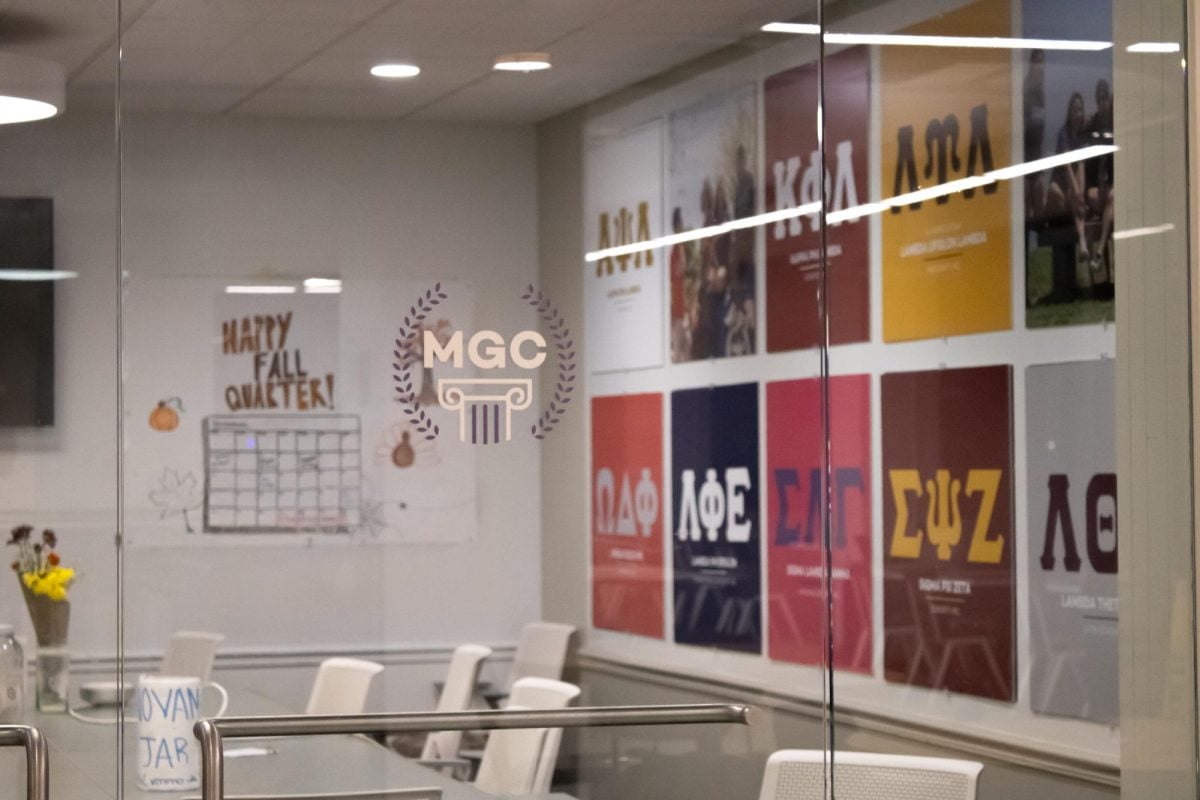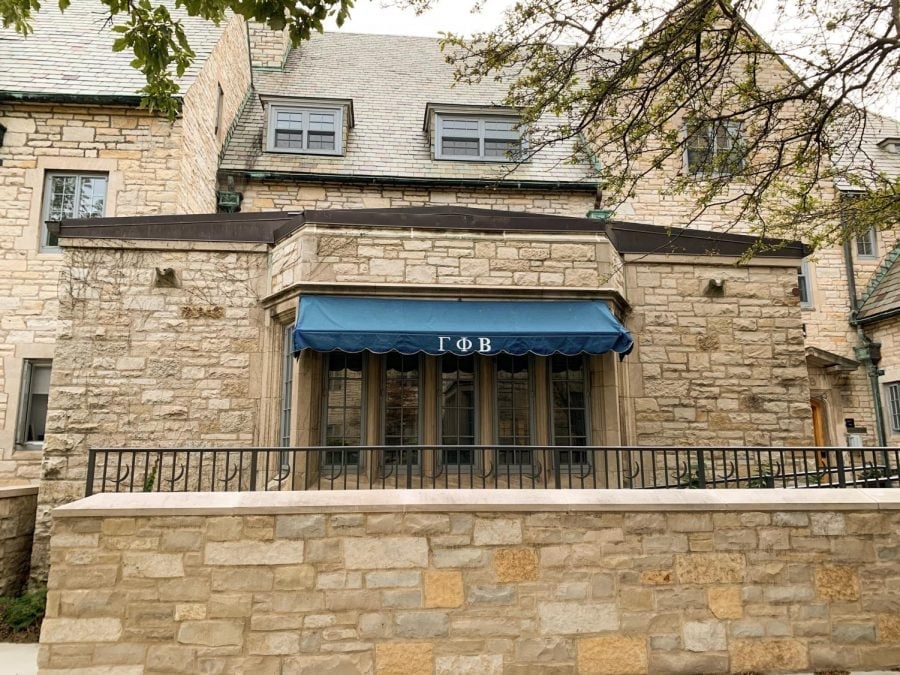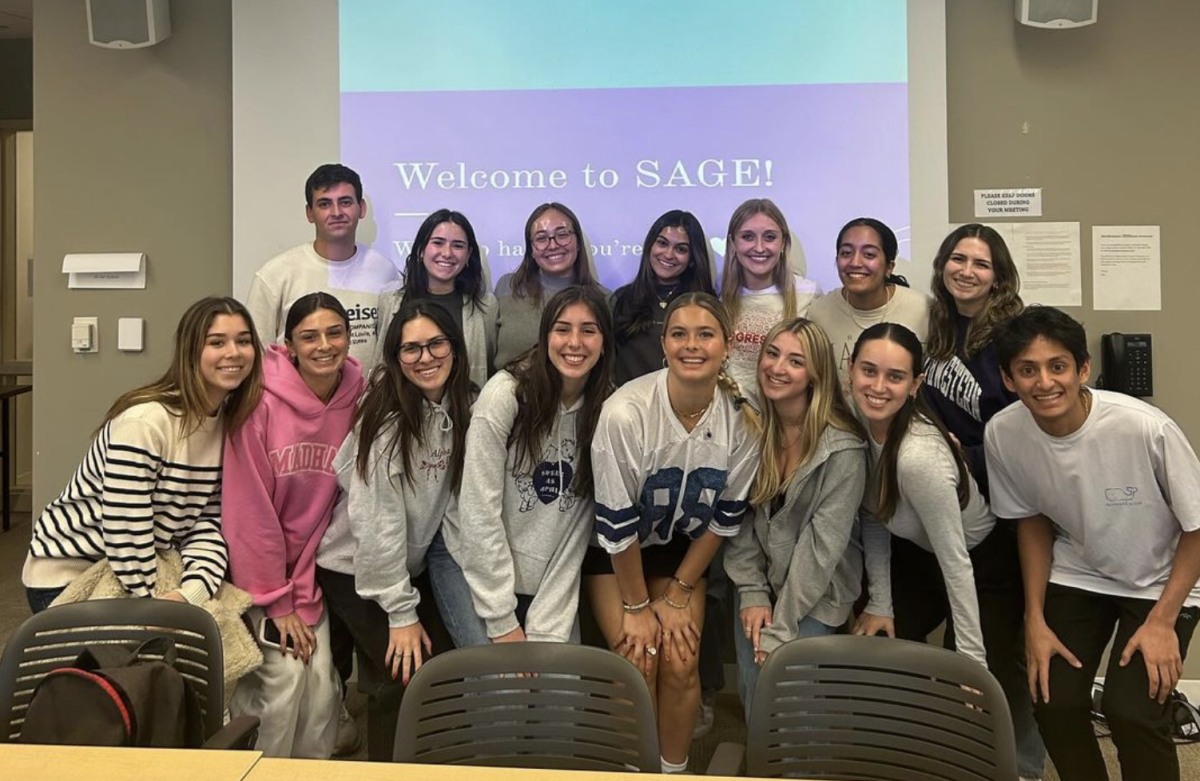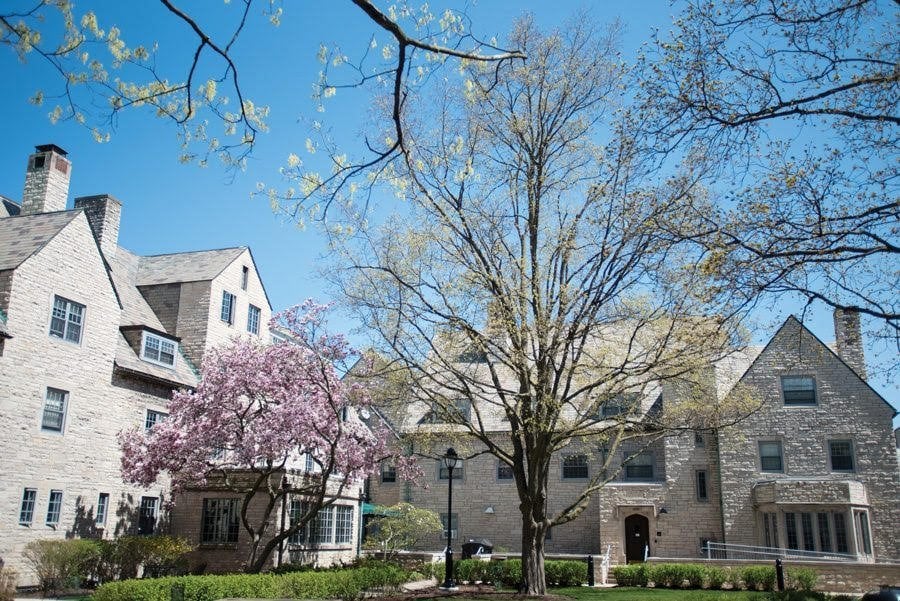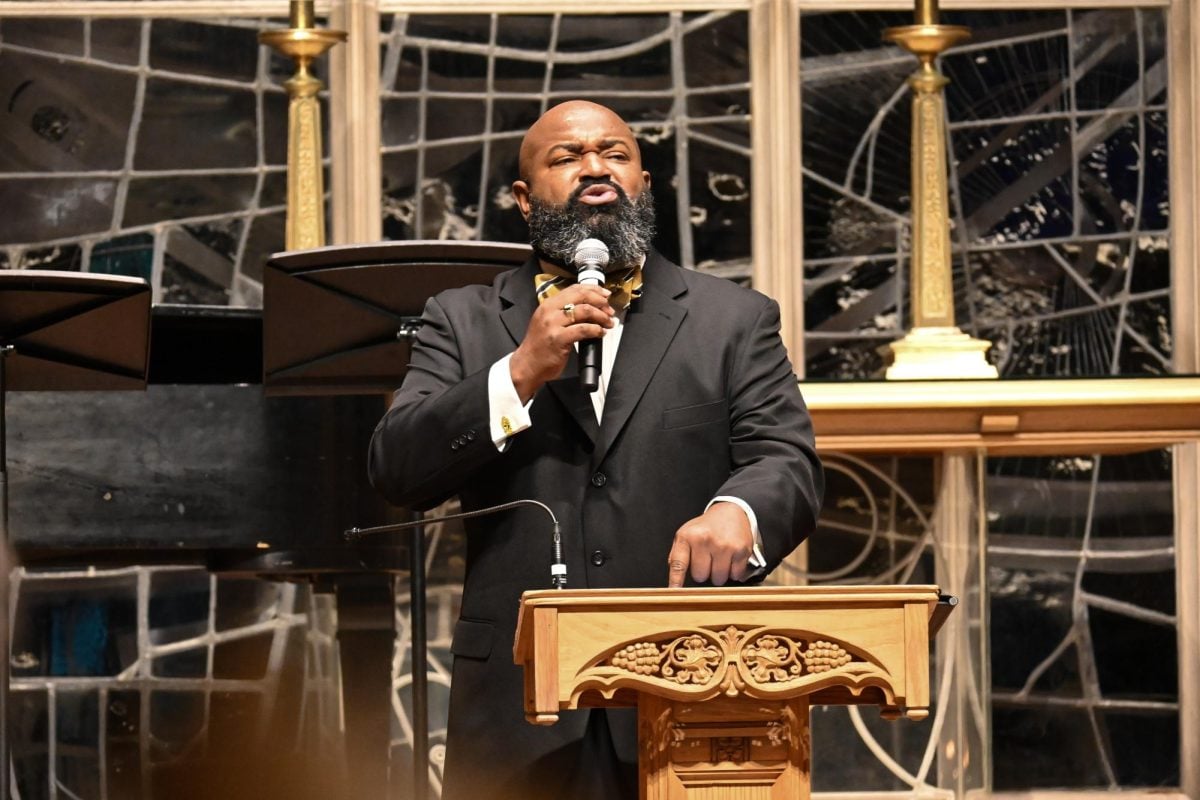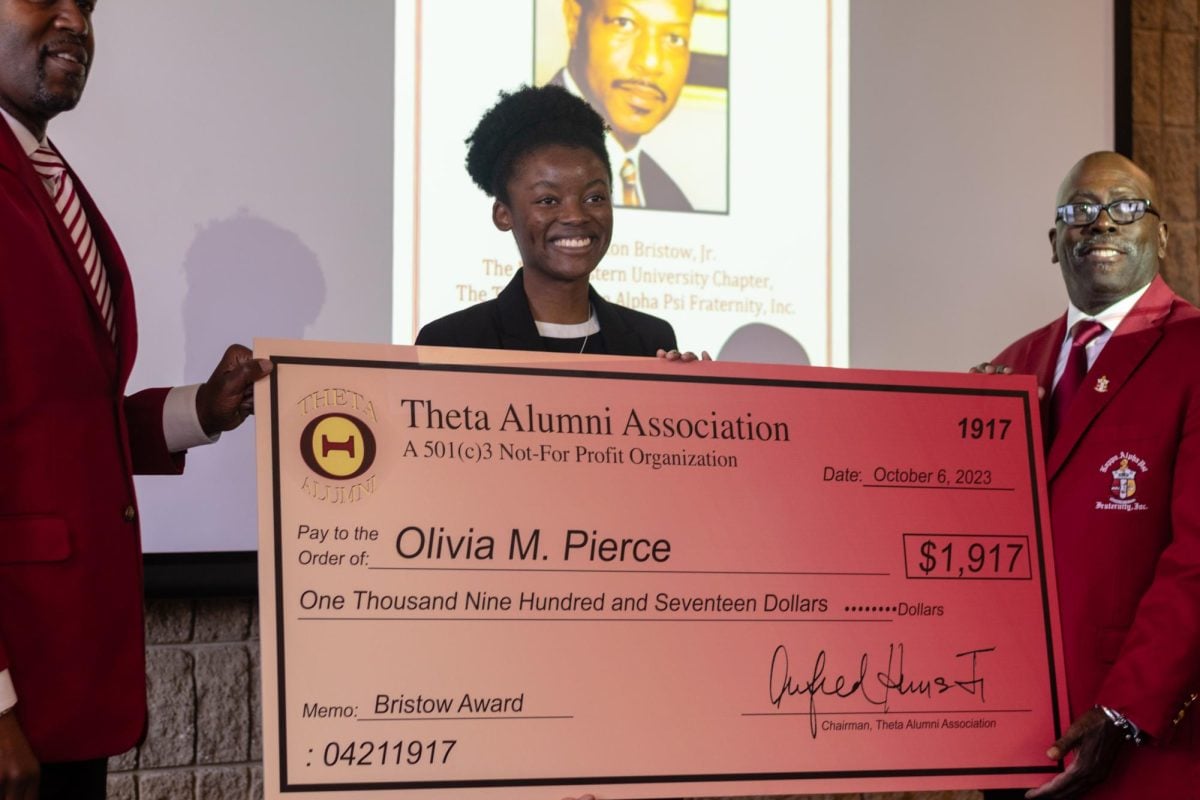The Northwestern Community Development Corps began its annual fall lecture series at Swift Hall on Tuesday, hosting a panel discussion titled “Growing Up Chicago.”
The panel, which focused on educational challenges for Chicago area youth, included Marcus Campbell, the director for student supports and racial equity at Evanston Township High School, and Maddie Orenstein (SESP ‘10), a college and career coach at Carl Schurz High School. The panelists each spoke for five minutes about their own work and then took questions from the audience. About 100 students attended the talk.
Weinberg seniors Miles Mamon and Caroline Dzeba, a former Daily staffer, organized the lecture series. Both said they chose education as this year’s topic because of its universality.
“It’s something that everyone can relate to,” Dzeba said. “Regardless of our background, we’ve all gone through school systems and we’ve all had different levels of privilege or hurdles in education.”
Orenstein, who was accompanied by a student she counsels at Schurz, discussed how her experiences at NU provided her with motivation for her work.
“I was confused because I came to Northwestern to be at a big university by a big city with people who love cities and were from cities,” Orenstein said. “I didn’t get why there was such a lack of Chicago Public Schools students.”
Campbell said outdated education methods cripple many schools in Chicago and the surrounding area.
“We’re trying to use 20th-century means to solve 21st-century problems,” he said. “There are lots of schools and lots of systems that are thinking out of the box and being creative.”
As examples, Campbell cited educator residency programs, in which teachers experience the school community before being hired, as well as detracking initiatives that try to close the achievement gap between students who take honors courses and those who do not. He advocated project-based learning, internships within school curricula and long-term relationships between students and teachers.
The panel also included SESP Prof. Carol Lee, who encouraged those in attendance to get involved with issues of urban education but warned against the often-held attitude that they are fixing broken communities. Instead, Lee said, students should look at this type of work as an opportunity to expand their social networks.
“It is just as much an opportunity for you to learn as it would be potentially for the young people for whom you are working,” Lee said. “This is a wonderful opportunity for you to expand your horizons.”
Weinberg senior Todd Levine attended the panel with about 30 other members of NU’s chapter of Jumpstart, a national nonprofit that trains college students to aid in early childhood education. Levine stressed the importance of NU students engaging in local education.
“We’re so close to the city where there are so many issues that need to be fixed,” Levine said. “To ignore that would be a waste of all the brainpower and resources we have here, and it gives students a great opportunity to learn by being able to engage the city and the people in need there.”
Mamon said NCDC hopes to inform the NU community about the issues while letting community members choose their own paths for engagement.
“We’re trying to get people involved in educational sites we have going on and really just educating people and letting people go from there,” he said.
The fall lecture series is part of NCDC’s broader Dialogues Lecture series, which seeks to educate NU students about policy issues from the standpoint of social justice.
The series continues Thursday with a keynote address by Tim King, the founder and CEO of Urban Prep Academies, and concludes Nov. 15 with a panel on violence prevention.
Editor’s note: This article incorrectly stated the name of NCDC‘s lecture series. It has been updated to reflect the correct name. The Daily regrets the error.
